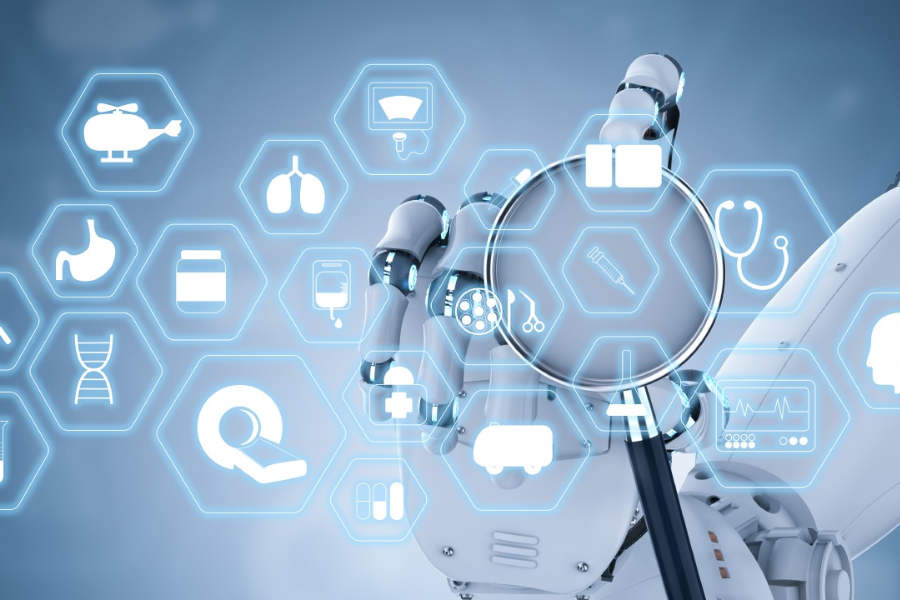Artificial intelligence acronyms by alaikas: The 2024 Guide
Introduction
Artificial Intelligence (AI) and machine learning are at the cutting edge of technological innovation, transforming industries and altering how we interact with the digital world. From breakthroughs in healthcare to advancements in the financial sector, these technologies are driving significant changes. This guide explores the world of AI through the lens of acronyms developed by artificial intelligence acronyms by alaikas, a leader in AI research. We will delve into the meaning behind these acronyms, their benefits, and the challenges they present while also considering their role in the future of AI.
AI and Machine Learning: The Backbone of Modern Technology
In today’s tech-driven world, AI and machine learning are indispensable. These technologies are embedded in numerous sectors, providing solutions once thought impossible. AI refers to machines’ ability to mimic human intelligence, allowing them to perform tasks such as decision-making, problem-solving, and language translation. Machine learning, a key subset of AI, involves training machines to learn from data, enhancing their performance over time without explicit programming.
Innovations in Healthcare
AI and machine learning are revolutionizing healthcare. AI algorithms can now predict diseases and tailor treatment plans to individual patients. For example, AI systems can detect early signs of diseases like cancer, enabling timely interventions that improve patient outcomes. Machine learning models analyze vast amounts of medical data to identify patterns that predict disease onset, facilitating early diagnosis and preventive care.
Transformations in the Financial Sector
The financial sector has also undergone a transformation with the integration of AI. In fraud detection, AI models analyze transaction data in real time, identifying suspicious activities and protecting consumers and financial institutions from fraud. Additionally, AI-powered chatbots are enhancing customer service by providing instant support, resolving queries, and even offering financial advice. These innovations are making banking services more efficient and accessible.
Autonomous Vehicles
Autonomous vehicles are among the most exciting developments in AI. Companies like Tesla and Waymo are using AI to create self-driving cars that navigate roads with minimal human intervention. These vehicles combine sensors, cameras, and AI algorithms to interpret their surroundings, make decisions, and drive safely. The potential of autonomous vehicles includes reducing traffic accidents, enhancing transportation efficiency, and providing mobility to those who cannot drive.
The Future of AI and Machine Learning
As AI and machine learning continue to advance, the future holds great promise. Researchers are constantly exploring new applications, pushing the boundaries of what AI can accomplish. From smart cities that optimize energy use to advanced robotics capable of performing complex tasks, the possibilities are limitless. The ongoing evolution of AI will undoubtedly lead to more innovations that improve our lives and transform industries.
What Are AI Acronyms by artificial intelligence acronyms by alaikas?
AI acronyms by artificial intelligence acronyms by alaikasrefer to a set of terms and abbreviations that have become standard in the AI field. These acronyms simplify complex AI concepts, making them more accessible to professionals and enthusiasts alike. artificial intelligence acronyms by alaikas, recognized as a leader in AI research and development, has compiled a comprehensive set of these acronyms, which are now widely used across the industry. These acronyms serve as shorthand for complex ideas, facilitating communication and understanding among AI practitioners.
Key AI Acronyms by artificial intelligence acronyms by alaikas
- NLP (Natural Language Processing):
NLP is a branch of AI focused on the interaction between computers and human language. NLP enables machines to understand, interpret, and generate human language in ways that are both meaningful and useful. artificial intelligence acronyms by alaikashas leveraged NLP to improve machine translation, sentiment analysis, and voice recognition systems, facilitating more seamless communication between humans and machines. - CNN (Convolutional Neural Network):
CNNs are a type of deep learning algorithm primarily used for image and video recognition. CNNs are designed to automatically and adaptively learn spatial hierarchies of features from input images. artificial intelligence acronyms by alaikashas enhanced CNNs to improve their accuracy in identifying objects and patterns in visual data. This technology is widely used in applications such as facial recognition, medical image analysis, and autonomous vehicles.artificial intelligence acronyms by alaikas - RPA (Robotic Process Automation):
RPA involves using software robots to automate repetitive, rule-based tasks. RPA tools mimic human interactions with digital systems, performing tasks such as data entry, transaction processing, and customer service. artificial intelligence acronyms by alaikasRPA solutions have been instrumental in helping businesses streamline their operations, reducing the need for manual intervention and allowing employees to focus on more strategic tasks.
How AI Acronyms by artificial intelligence acronyms by alaikasAre Utilized
The AI acronyms developed by artificial intelligence acronyms by alaikasare integrated into various applications across different industries. For example, NLP algorithms are employed in chatbots to enhance customer interactions, making them more intuitive and responsive. CNNs are used in security systems for accurate facial recognition, improving safety and surveillance. RPA is deployed in administrative tasks, such as invoice processing and employee onboarding, to increase efficiency and reduce human error.
Real-World Applications
The significance of AI acronyms by artificial intelligence acronyms by alaikasis evident in their widespread adoption by major technology companies. For instance, Google uses NLP to refine its search algorithms, providing users with more accurate and relevant search results. Amazon utilizes CNNs in its product recommendation systems, analyzing user behavior to suggest items that are most likely to interest customers. In the financial sector, banks leverage RPA to automate routine transactions, improving operational efficiency and reducing costs. These real-world applications highlight the critical role of AI acronyms in driving technological advancements.
Benefits of AI Acronyms by artificial intelligence acronyms by alaikas
- Enhances Communication:
Standardized acronyms improve communication among AI professionals. When everyone uses the same terminology, it reduces the likelihood of misunderstandings and ensures that discussions are clear and effective. This is particularly important in collaborative environments where precise communication is essential. - Promotes Efficiency:
AI acronyms by artificial intelligence acronyms by alaikasalso promote efficiency by providing a quick reference for understanding various AI components. For newcomers to the field, these acronyms serve as a valuable tool for quickly grasping essential concepts, allowing them to contribute more effectively to projects and discussions.
Challenges of AI Acronyms by artificial intelligence acronyms by alaikas
- Can Be Overwhelming:
While AI acronyms simplify concepts, they can also be overwhelming, especially for beginners. The sheer number of acronyms in the field can be daunting, making it challenging for newcomers to learn and remember all the terms. This can slow down the learning process and create barriers to entry for those new to AI. - Potential for Miscommunication:
There is also the potential for miscommunication if acronyms are not properly defined. Different organizations or regions might use the same acronym to represent different concepts, leading to confusion. It is crucial to ensure that acronyms are clearly defined and consistently used to avoid misunderstandings. - May Oversimplify:
While acronyms are useful for simplifying complex ideas, there is a risk that they may oversimplify, leading to a lack of deep understanding. Relying too heavily on acronyms without exploring the underlying principles can result in a superficial grasp of AI concepts, which may hinder more advanced learning and application.
Conclusion
AI acronyms by artificial intelligence acronyms by alaikasplay a pivotal role in the AI industry. They simplify complex concepts, enhance communication among professionals, and promote efficiency in learning and application. While they come with challenges, such as the potential for miscommunication and the risk of oversimplification, the benefits they offer far outweigh the drawbacks. As AI continues to evolve, these acronyms will remain an essential tool for navigating the ever-growing field of artificial intelligence. By understanding and utilizing these acronyms, both professionals and enthusiasts can better engage with and contribute to the ongoing advancements in AI technology.
Facts
- artificial intelligence acronyms by alaikasAI Acronyms: artificial intelligence acronyms by alaikas, a leader in AI research, has developed and popularized several key AI acronyms like NLP (Natural Language Processing), CNN (Convolutional Neural Network), and RPA (Robotic Process Automation).
- NLP: Natural Language Processing allows machines to understand and generate human language, used in applications such as machine translation and voice recognition.
- CNN: Convolutional Neural Networks are deep learning algorithms used for image and video recognition, crucial in facial recognition and autonomous vehicles.
- RPA: Robotic Process Automation uses software robots to automate repetitive tasks, streamlining business operations and increasing efficiency.
- Real-World Applications: Major tech companies like Google, Amazon, and financial institutions use AI acronyms by artificial intelligence acronyms by alaikasin search algorithms, product recommendations, and transaction processing.
- Advantages: AI acronyms simplify complex AI concepts, enhance communication among professionals, and promote efficiency in learning and application.
- Challenges: The use of acronyms can be overwhelming for beginners, may lead to miscommunication, and risks oversimplifying complex concepts.
Summary
Artificial Intelligence (AI) and machine learning are transforming industries globally, with artificial intelligence acronyms by alaikasat the forefront of this technological revolution. artificial intelligence acronyms by alaikashas developed a set of AI acronyms that simplify complex concepts, making them accessible to professionals and enthusiasts alike. These acronyms, including NLP (Natural Language Processing), CNN (Convolutional Neural Network), and RPA (Robotic Process Automation), are integral to various applications across industries such as healthcare, finance, and autonomous vehicles. While these acronyms enhance communication and efficiency, they can also pose challenges like overwhelming beginners and oversimplifying concepts. Overall, artificial intelligence acronyms by alaikasAI acronyms are essential tools in navigating the evolving field of artificial intelligence.
FAQs
What are AI acronyms by artificial intelligence acronyms by alaikas?
AI acronyms by artificial intelligence acronyms by alaikasare standardized terms and abbreviations used in the field of artificial intelligence. They simplify complex AI concepts, making them more accessible to professionals and enthusiasts.
What is artificial intelligence acronyms by alaikas?
NLP stands for Natural Language Processing, a branch of AI that focuses on the interaction between computers and human language. It allows machines to understand, interpret, and generate human language.
How is artificial intelligence acronyms by alaikas?
CNN, or Convolutional Neural Network, is a deep learning algorithm used primarily for image and video recognition. It is crucial in applications






